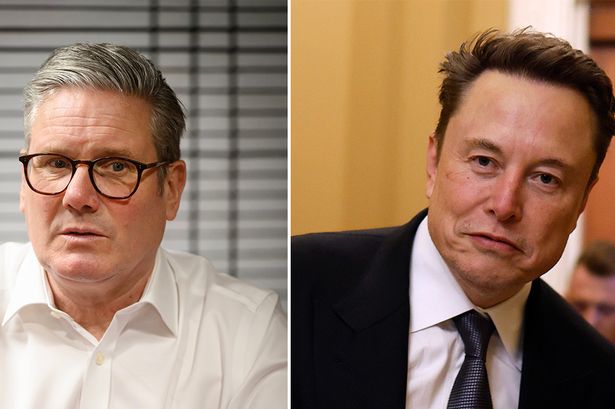Elon Musk’s recent foray into British politics via Twitter/X has ignited a firestorm of controversy, centering around allegations of a widespread child grooming scandal implicating the Labour Party and its leader, Keir Starmer. Musk’s pronouncements, often delivered with characteristic bluntness and lacking detailed substantiation, have called for a national inquiry into these alleged grooming gangs, implying a systemic failure within Labour to address the issue and potentially even a level of complicity. While the issue of child exploitation is undeniably serious and demands rigorous investigation, Musk’s interventions have raised concerns about the responsible use of social media platforms by influential figures and the potential for misinformation to spread rapidly and shape public discourse. His accusations, lacking concrete evidence and presented without journalistic rigour, have been criticized for potentially undermining genuine efforts to combat child exploitation and politicizing a sensitive issue.
The core of Musk’s allegations revolves around the perception that the Labour Party, under both past and present leadership, has failed to effectively address the issue of grooming gangs operating within the UK. He has specifically targeted Keir Starmer, referencing Starmer’s previous role as Director of Public Prosecutions (DPP), suggesting a lack of action or even deliberate inaction during Starmer’s tenure. Musk’s pronouncements often lack specific details or evidence, relying on broad generalizations and innuendo, leading many to accuse him of engaging in a form of online character assassination rather than presenting a reasoned argument based on verifiable facts. This approach has drawn heavy criticism from across the political spectrum, with accusations that Musk is using his platform to spread misinformation and potentially damage the reputations of individuals without due process. The controversy underscores the complexities of balancing free speech with responsible online behavior, particularly for individuals wielding significant influence.
The debate surrounding child grooming gangs in the UK is not new. Reports and investigations have exposed horrific cases of organized abuse in various parts of the country, often involving vulnerable young girls. These cases have revealed systemic failures within law enforcement and social services to protect victims and bring perpetrators to justice. The issue has also been fraught with racial and religious sensitivities, with some perpetrators belonging to specific minority communities. This has led to accusations of both under-reporting and over-simplification, with concerns that focusing on the ethnicity or religion of perpetrators can fuel prejudice and obscure the broader societal factors that contribute to child exploitation. Musk’s intervention into this complex and sensitive landscape has been criticized for lacking this nuanced understanding, with his broad-stroke accusations potentially exacerbating existing tensions and hindering efforts to address the root causes of the problem.
The implications of Musk’s actions extend beyond the immediate political fallout. His pronouncements highlight the growing power of social media platforms to shape public opinion and influence political discourse, even in the absence of traditional journalistic vetting or fact-checking. The speed and reach of platforms like Twitter/X allow misinformation to spread rapidly, potentially bypassing established media channels and reaching a vast audience directly. This presents a significant challenge to democratic processes and the pursuit of informed public debate. Musk’s pronouncements, delivered to his millions of followers, can potentially influence perceptions and even voting behavior, regardless of their factual basis. This raises serious questions about the responsibility of social media platforms and their owners to mitigate the spread of misinformation and ensure that public discourse is based on accurate and verified information.
The controversy surrounding Musk’s allegations also raises fundamental questions about the role of billionaires in public life and the potential dangers of unchecked influence. Musk’s vast wealth and ownership of a powerful communication platform grant him a unique ability to shape narratives and influence political outcomes. Critics argue that this level of influence, combined with a disregard for journalistic standards and a tendency towards impulsive pronouncements, poses a threat to democratic processes and the integrity of public discourse. The incident serves as a cautionary tale about the potential for concentrated power to be used irresponsibly and the urgent need for greater accountability and transparency from those wielding such influence.
The fallout from Elon Musk’s interventions is likely to continue, with ongoing debates about the veracity of his claims, the responsible use of social media platforms, and the role of billionaires in public life. The incident serves as a stark reminder of the power of misinformation in the digital age and the urgent need for critical thinking and media literacy. Furthermore, it highlights the complexities of addressing sensitive social issues like child exploitation, requiring nuanced understanding, careful consideration, and a commitment to evidence-based solutions rather than sensationalized accusations. The long-term impact of this episode remains to be seen, but it underscores the critical need for ongoing dialogue and robust mechanisms to ensure that public discourse remains informed, responsible, and conducive to constructive societal progress.














